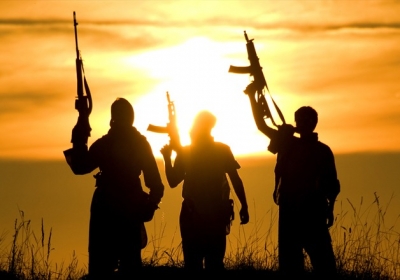State-sponsored sabotage: How Pakistan became a factory for global terror
By IANS | Updated: May 3, 2025 17:42 IST2025-05-03T17:39:48+5:302025-05-03T17:42:26+5:30
New Delhi, May 3 For over three decades, India has faced the brunt of a proxy war — ...

State-sponsored sabotage: How Pakistan became a factory for global terror
New Delhi, May 3 For over three decades, India has faced the brunt of a proxy war — one waged not from across the world, but across the border. When the demand is made to “show evidence,” it rings hollow. After all, how much proof is needed when the venom of terrorism seeps consistently from the same snake pit?
Who arms and trains the terrorists that have repeatedly struck at the heart of India? Who provides them safe havens and ideological indoctrination? The answer remains unchanged: Pakistan.
From the bloodshed in Kashmir to the devastating 2008 Mumbai attacks, the fingerprints point clearly towards Pakistan’s deep-state nexus of intelligence, military, and jihadi outfits. Lashkar-e-Taiba operative Tahawwur Rana — now extradited from the United States to India — was a key conspirator in the Mumbai massacre. Meanwhile, Hafiz Saeed walks freely in Pakistan, his terror empire untouched.
Salahuddin, the Hizbul Mujahideen chief designated a global terrorist by the United States, lives openly in Pakistan. Dawood Ibrahim, the mastermind behind the 1993 Mumbai blasts and linked to later attacks, including the Mumbai train bombings, has been sheltered for decades in Karachi. These aren't allegations — these are acknowledged facts.
Pakistan's record isn’t limited to Islamic extremism alone. It has given shelter to known Sikh separatist elements and allowed them to incite violence against India from afar. Osama bin Laden, the most wanted terrorist in the world, was found hiding in Abbottabad — a stone's throw from a major Pakistani military academy. Coincidence?
Let’s not forget the Taliban — born from Pakistan’s madrassas, armed and guided by its establishment, and eventually used to bring Kabul to its knees. In the process, they also killed American soldiers. So the damage wasn't limited to India; the world paid the price for Pakistan’s duplicity.
The truth becomes even clearer when Pakistan’s own former leaders admit to this strategy. A former army chief who seized power in a coup once proudly stated that terrorism was a "low-cost option" against India. A former Prime Minister was forced to retract a leaked comment acknowledging the damaging role of state-sponsored terror. Pakistan army chief General Asim Munir recently described Kashmir as Pakistan’s "jugular vein" and praised the religious divide fuelling violence — a stark admission of strategic intent.
The strategy is sinister: arm, train, and infiltrate terrorists across the LoC under the guise of local Kashmiri "freedom fighters." Sophisticated communication gear, near-military level training, and logistical support — these are not tools of grassroots rebellion, but of cross-border sabotage.
Pakistan has also consistently resisted the international designation of its nationals involved in terrorism — often with the help of China — further shielding these actors from global accountability.
The narrative is clear. This isn’t only about Kashmir. It’s also about a decades-long state policy of destabilising India through terror. The facts are undeniable. The casualties are real. The threat is ongoing.
To ask for "evidence" after years of bombings, massacres, and buried bodies is to ignore the obvious. Pakistan's long-standing record as the world's foremost state sponsor of terrorism speaks louder than any dossier.
Disclaimer: This post has been auto-published from an agency feed without any modifications to the text and has not been reviewed by an editor
Open in app